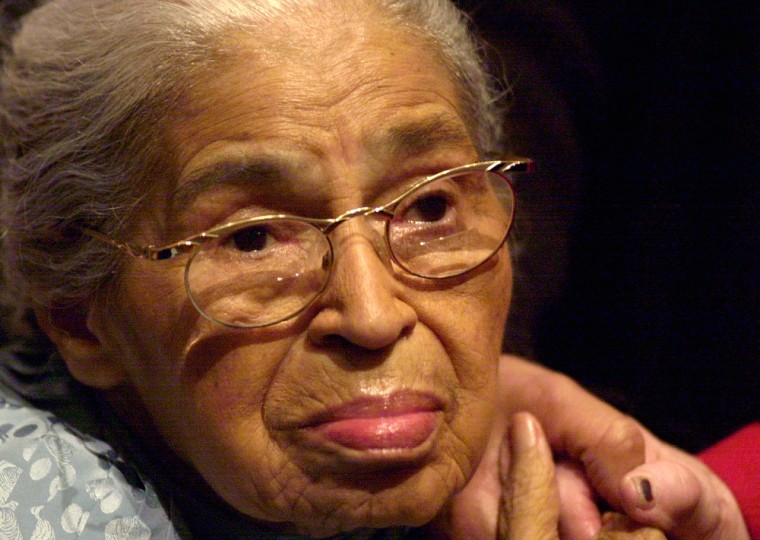With the death of Rosa Parks, the 50th anniversary of her arrest and the historic bus boycott it sparked will focus on the protest’s lesser-known foot soldiers.
While Parks was remembered for helping start the modern civil rights movement by refusing to give up her bus seat to a white man on Dec. 1, 1955, it took some 40,000 black people in Montgomery to back her with their own defiance.
Led by the Montgomery Improvement Association and its president, the Rev. Martin Luther King Jr., they used car pools and church vehicles during a yearlong boycott of the city’s segregated buses. The boycott ended when the U.S. Supreme Court ruled the segregation was unconstitutional.
Attention to the unknowns
“Before (Parks) passed we decided this would be an opportunity to honor any and everybody, known and unknown,” said Robert White, chairman of the anniversary committee. “We are going to pay more attention to unsung heroes and average participants of the boycott.”
The 50th anniversary will acknowledge the contributions of people like Mary Louis Smith, Claudette Colvin and E.D. Nixon who are vital to the history of the protest, White said.
Smith and Colvin also were arrested for refusing to give up their bus seat and were among five black women whose federal court suit, known as Browder vs. Gayle, led to the Supreme Court ruling. Nixon was a prominent activist who was instrumental in organizing the boycott.
White said Colvin has accepted an invitation to take part in the commemoration.
A week of anniversary events kicks off Thursday when youths of different races make an eight-block march to the Capitol beginning at the downtown spot where Parks was arrested — now the site of the Rosa Parks Museum.
They will be invited to offer petitions of their own dreams to public officials at the Capitol. A Webcast of the walk will include interactive forums for children around the world, according to organizers.
‘Civil rights for everybody’
Lynn Beshear, a member of the walk’s steering committee, felt the commemoration needed an event that included all the children of Montgomery — black and white.
“It didn’t just free black folks, it was about civil rights for everybody,” Beshear said.
Other events include a Dec. 5 reenactment of a meeting where thousands gathered at a church days after Parks’ arrest and helped lay the groundwork for the boycott. A few days later, Alabama State University will honor the plaintiffs of Browder vs. Gale.
Anniversary organizers said the Oct. 24 death of Rosa Parks, at age 92, underscores the need for a new generation of leaders to continue the fight for civil rights.
“If you have a grass-roots movement, the movement creates leaders,” walk coordinator Wayne Sabel said. “They (young people) can’t wait for some leaders to come along. It’s up to the people.”
